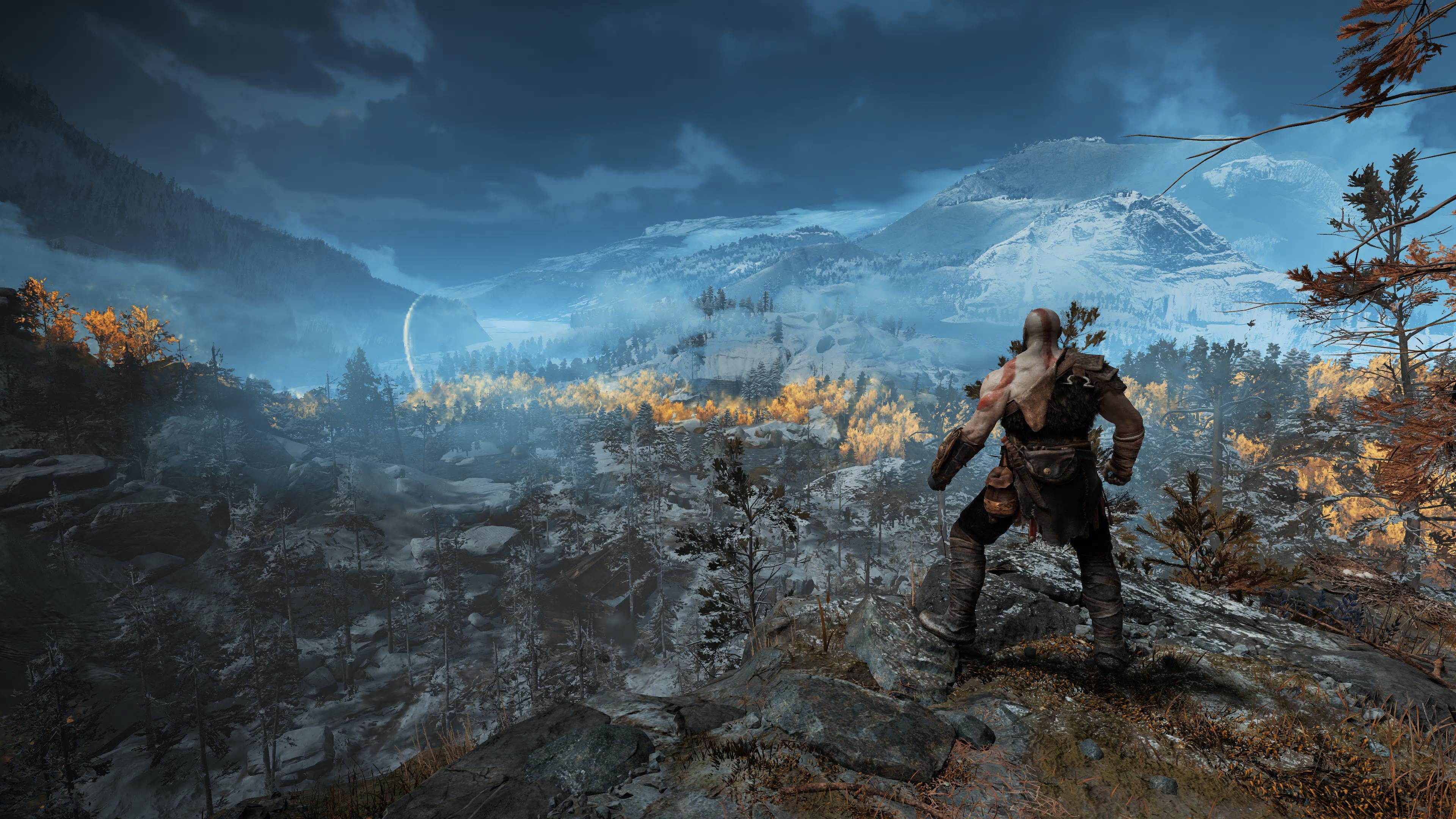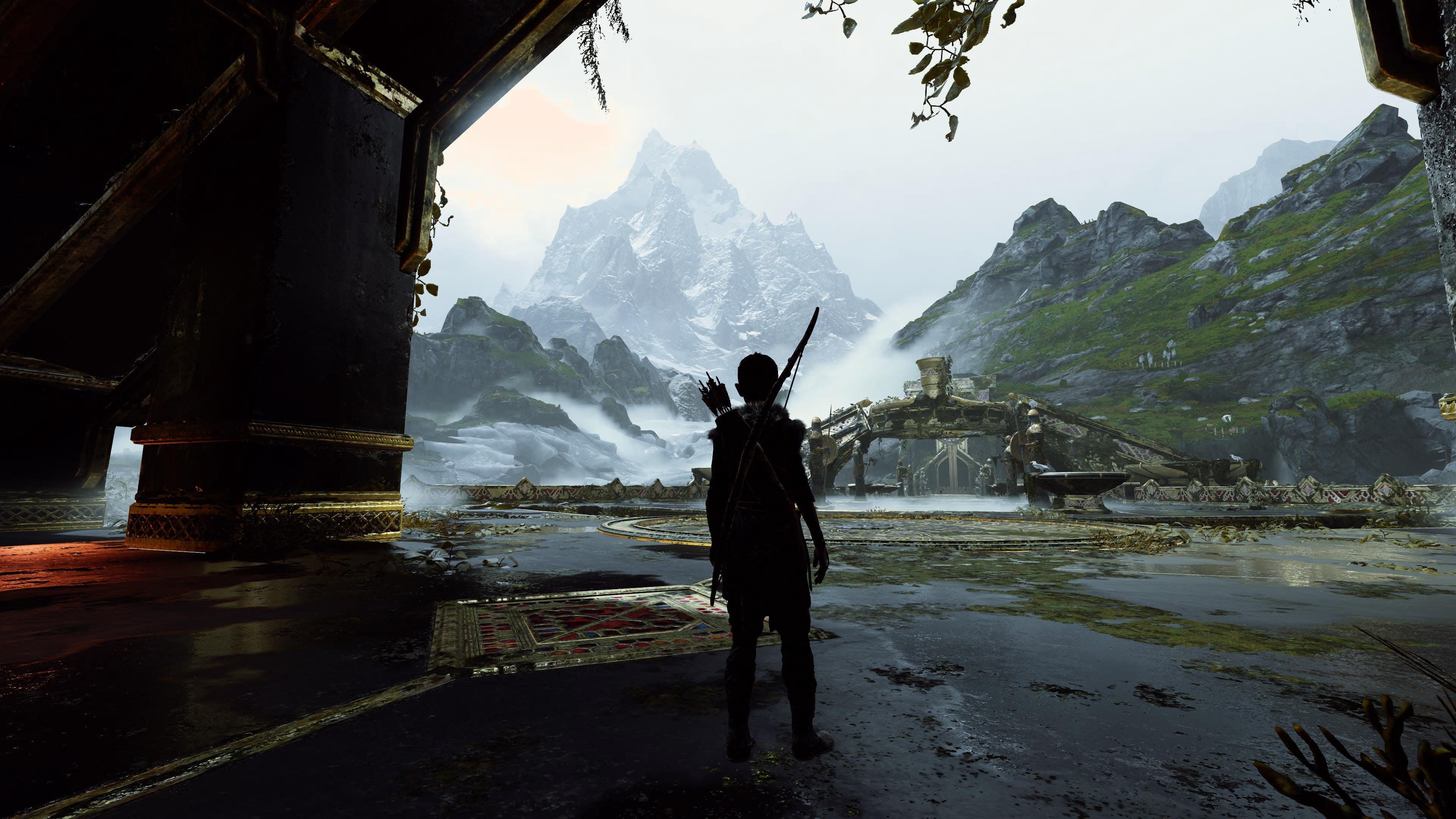Astrolabe 30: How to support your favourite authors without breaking the bank
Books, ducks, gods, and localization

Spread the Love
Back when I was a book blogger, it was pretty obvious how I could support the books and authors I loved: write about them. I had to be fair and critical in my reviews, which meant doling out some not-so-positive reviews of my favourite authors from time-to-time, but there was also opportunity to boost their work through general news coverage. Stuff like cover reveals, guest posts, interviews, and general signal boosting on social media networks. Just… make noise.
As I’ve transitioned into more of an author than a blogger—with my first traditionally published book coming out late last year—I’ve taken a lot of lessons from those blogging days about how readers can support their favourite writers outside of simply purchasing their work. The Internet is a powerful thing, and algorithmic favortism can help boost a book from fringe novelty to fandom favourite.
In an age where publicity has largely been shifted to writers themselves, this reader support is vital for many books. There’s only so much an author can do (people don’t generally listen to writers yelling maniacally about how you should read their book), but readers? Readers are a powerful, grassroots voice for the arts.
So, here’'re some ideas of how you can support your favourite writers and books without breaking the bank. Word of mouth is priceless.
Totally Free
These methods’ll cost you zilch. Not even the lint in your pocket, or the moths that flutter out of your wallet.
Review their books online
Online reviews are huge for authors. They sell books. They help convince publishers to pick up their next book. They help authors appear more prominently on book selling sites. Etc. You’ve read it, you’ve loved it, and now you’re totally free to encourage other readers on Amazon, Barnes & Noble, Goodreads, Kobo, and Indigo to read it, too. It doesn’t have to be a long, expansive review. Something short, concise, and positive is all you need.
Once books have reached a certain threshold of reviews/ratings (I think it’s 100 on Amazon, for instance), they get boosted by bookseller algorithms, which dramatically improves their likelihood of reaching new, interested readers.
You can even review my book, Fight, Magic, Items, if you’ve read it. Pretty please?
Use your local library
Get a load of this.
Did you know there are places you can go and read books for free? Like, totally free. Sometimes they’re in big buildings. Some of them live on street corners in residential neighbourhoods behind glass-paned doors, accompanied by a sign encouraging you to “Take a book, leave a book.”
They’re called libraries, and they’re AMAZING.
Borrowing books is awesome, but don’t forget that you can also request your library bring in books they don’t have. This’ll net the author a sale, while also allowing you (and future savvy readers) a chance to read it while staying on budget for the month.
Also, did you know you can get eBooks and Audiobooks from the library? ‘Cause I didn’t until recently, and, wow, that’s great. No more stinky, falling apart paperbacks or gross plastic covers. Plus, you can download ‘em while soaking in the tub, if that’s your sorta thing.
Spread the word
Word of mouth is still the best form of marketing for an author, and with the Internet, it’s never been easier to turn other readers onto your favourite works. Get on social media and post about the book. Don’t just paste a link and call it a day—tell people why you loved the book, convince them they need it in their life. (Without being obnoxious.) Quote tweet authors’ promotional materials, post recommendations on Reddit, create Instagram stories and TikTok videos, rave about it in your newsletter (See: The “Recommended Reads” section of Astrolabe), etc.
Or, do it the old fashioned way: pass a copy off to a friend, co-worker, or family member. Convince your book club to read it next. Convince your husband’s book club to read it next. Your mom’s. Grandpa’s. (Sadly, I haven’t convinced my wife’s book club to read Fight, Magic, Items. One day!)
Point is, if you convince other people to give your favourite author a look, they might pick up another fan who’ll buy their other books. It’s the most tried-and-true method for growing an audience.
Give ’em a shout
Seriously. Authors love to hear from readers who have enjoyed their books. No matter how big and successful they are, it never gets old to hear how you’ve positively affected somebody. Check out their website for contact info to find out the best way to say hi—and drop them a message or email. (Just, be polite, mm’kay?)
Start a blog! Join BookTok or BookTube!
I’ve been doing this for almost two decades now, and it’s never stopped being an absolute delight to write about the books I love. Longform writing has always been my jam, but BookTok and BookTube—on TikTok and YouTube, respectively—are massive influences and an integral part of the industry. They both drive a lot of book sales, and launching massively viral success stories, each year.
You can sign up for a free Medium, YouTube, or TikTok account and start covering your favourite books right away. You might not get a ton of traffic off the hop (or ever), but there’s value in critically and fannishly engaging with your favourite books—and that’s worth the price of admission alone.
Cheaper than a cup o’ coffee
If you’ve got a bit left over in your budget, there are also a few ways to make a buck go a long way.
Seek out their cheaper work
Many authors, especially in the science fiction and fantasy world, have cheaper works available. These might be free short stories, $3 novellas, or whole self-published novels that can be had for less than the price of a coffee.
Kick ’em some cash
Many writers maintain platforms on Patreon or Ko-fi so fans can monetarily support them in whatever way fits their budget. Others, like me, have newsletters on platforms like Substack, which offer monetary pledges from readers. Sometimes, these offer readers a simple way to support their favourite authors, without expecting anything in return—other times, doing so gets you access to exclusive/early material. Either way, direct-to-creator monetary support is vital for creative professionals going forward, so toss a coin to your Witcher, if you can.
Some accounts to check out: N.K. Jemisin, Sarah Gailey, Bogi Takács, Jason Sanford, Kate Elliott, and Matthew Claxton. Check out my Twitter thread for a whole slew of other great creators.
You can, of course, also pledge to Astrolabe to support my writing:
Support used bookstores
I’ve lost count of how many times I’ve discovered a new author thanks to a cheap used book, and then gone on to devour their back catalogue. Even though the author doesn’t earn anything off these sales, it still allows you to enjoy their work, and practice many of the above steps. Plus, by donating old books that you’re never going to reread, you’re giving another reader—maybe someone young or someone who doesn’t have the option to buy full-priced books—the chance to discover something that you love at a fraction of the cost.
Go, go, go!
As you can see, there are a lot of ways to support authors that don’t require a large financial investment. So, get out there and show your favourite authors the love. They’ll appreciate it.
(This article was originally published on my author website. It’s been revised and updated for this issue of Astrolabe.)
Out & About
Out & About is where I highlight my work around the web—some recent and some old favourites.
Over 18 months in the making, my debut at Washington Post is finally live (just in time for their AMAZING gaming vertical, Launcher, to close its doors far too soon…) and it’s by far one of my favourite pieces I’ve ever worked on. My book Fight, Magic, Items explores the history of Japanese RPGs and their rise to prominence in the west—but that never could have happened without the intrepid, groundbreaking work of localizers like Richard Honeywood (Dragon Quest VII, Xenogears, Chrono Cross) and Alexander O. Smith (Vagrant Story, Final Fantasy XII).
“How the greatest Japanese RPGs of the ‘90s came to the West” is a lengthy, hands on look at Honeywood and Smith’s work, complete with in-depth personal interviews, and how they changed the way we thought about games localization in the wake of Final Fantasy VII’s meteoric success
Read “How the greatest Japanese RPGs of the ‘90s came to the West” on Washington Post
LTTP—God of War (PlayStation 4, 2018)
LTTP (Late to the Party) is a regular column where I let Twitter decide which retro game I’ll play for an hour. Do your worst, Twitter!Okay, so, 2018 hardly counts as retro, but I recently bought a PlayStation 5, and it came bundled with a copy of God of War Ragnarök. The 2018 series reboot has been on my bucket list for a while, so it seemed like the perfect opportunity to check out the enhanced version available on the PS5. And, hoo boy, am I annoyed I’ve been sitting on this game for five years.
Also, how is this game five years old?

Since its early days on the PlayStation 2, God of War has always been known for intense combat, and despite the vastly different structure offered by the 2018 reboot—which is centred on the exploration of a semi-open world, rather than linear, level-based progression—this remains a selling point in God of War (2018). Ditching his trademark Blades of Chaos for a simpler axe (well, simple as far as magic-infused weapons in the hands of brutally violent gods go, at least), Kratos is a highly customizable and adaptable fighter, giving the player options for how they approach combat—leaning heavily into defensive play, going full magic, etc. Adding to this is the fun wrinkle of Kratos’s son, Atreus, who takes part in combat and can distract enemies, heal Kratos, and join his father for powerful attacks. I often dislike games that require capable protagonist to lead around young, weaker companions, but the experience is so polished and baked into God of War’s narrative experience that I immediately connected with Kratos’s relationship—in and out of combat—with his young son.

One of the things I disliked about the previous God of War games was that while the set pieces were constantly epic and memorable, there was little room to breathe. The series really leaned into the dark, edgy aesthetics aimed at young men in the mid-aughts. This new God of War is still an endless parade of incredible set pieces (like, seriously, I feel like I’m popping open photo mode so often that it’s starting to distract from my immersion), but the variety is astounding. There are quiet forests blanketed in snow; towering, crystalline temples; riverside cottages nestled under gigantic turtles; groves of blood red trees, dappled in sunlight; sweeping mountain vistas; foggy lakes hiding towering sentinels that bring to mind Tolkien’s Gates of Argonath. It’s just a pleasure to explore the world—even as violence threatens at every turn, and the visceral gore and brutality sets a tone that’s generally against my tastes. It’s a world the player appreciates, as does young Atreus, but one that protagonist Kratos—whom I was ready to hate, but ultimately found myself connecting with, much to my surprise—rejects constantly. He doesn’t want to save the world. He just wants to protect his son and the memories of his wife.
In an age where open world games like Breath of the Wild and Horizon Zero Dawn set new standards for the exploration and storytelling, God of War (2018) cements itself as a narrative and visual tour de force—and one of the most uniquely memorable entries in the genre. Pity I waited so long to experience it.
God of War was released in 2018 by Sony for the PlayStation 4. It’s also available on Windows and backwards compatible on the PlayStation 5.Recommended Read—Ducks by Kate Beaton

It’s been all but impossible to avoid Kate Beaton’s illustrated memior, Ducks: Two Years in the Oil Sands. It’s been on every best of the year list, it’s a finalist for Canada Reads, and it’s gained well-earned regard from nearly everyone who’s read it. Beaton, a Canadian cartoonist best known for her children’s books, pulls back the curtain on her life in the Alberta oilsands—lured there by the promise of money, like so many Canadians from far flung corners of my huge, beautiful country—and finds much more than she bargained for. Careful and detailed, broad ranging, achingly familiar, and touchingly personal, Ducks tells a deeply Canadian tale that still manages to be universal. It’s a story about the perils of capitalism, and the many ways humanity is imprisoned by the short term thinking of fabulously wealthy and dangerous corporations who care nothing for the people and communities that generate their profit—or their future.
A special shout out for having a whole chapter set in my home-away-from-home, Victoria, BC.
Get Ducks: Two Years in the Oils Sands by Kate Beaton from Drawn & Quarterly
Quest Markers
Quest Markers is a collection of the coolest stuff I’ve read around the web lately.- The Spear Cuts Through Water is the best overlooked book of the last year (Unsettling Futures)
- How Video Games Satisfy Basic Human Needs (Nautilus)
- Ash Ketchum inspired a generation of Pokémon fans — and his voice actor (Polygon)
- A Marxist View of Tolkien’s Middle Earth (Jacobin)
- Farewell to Dave’s Records (Reader)
- Unmasking Pedro Pascal, the Complicated New Face of Sci-Fi (Wired)
- The Fashion Legend That's Influenced Some Of Your Favorite Games And Manga (Kotaku)
- Tolkien and the Horrors of the Great War (Transfer Orbit)
- What I’d Like To See From The Video Game Industry In 2023 (The Gamer)
- Locally Focused Art Like Norco Offers a Crucial Alternative to Corporate Media (Paste)
- Face to face with a perfectly preserved dinosaur that looks like it was alive yesterday (The Nature of Things)
- YouTube: The History of Dragon Age (GVMERS)
- Why Were Old Video Games So Pixelated? (How-To Geek)
- How Indie Studios Are Pioneering Accessible Game Design (Wired)
- Final Fantasy’s best hero made me a better person (Inverse)
- The rise of Critical Role: How a crew of 'nerdy-ass voice actors' became Dungeons & Dragons rock stars (CBC)
- Dungeons & Dragons’ New License Tightens Its Grip on Competition (io9)
- Making Diddy Kong Racing Changed My Life (Time Extension)
- ‘He gives us every bit of himself’: how God of War’s actors hold the whole game together (The Guardian)
- Motherhood doesn’t mean giving up on gaming (Polygon)
- ‘Get something that’s fun to play, then think about the story’: how Nintendo keeps levelling up (The Guardian)
End Step
- Go buy Ducks. It’s so good.
- Tell me which of your favourite books I should go out and buy immediately!
- It’s that simple.
Support
There are lots of ways to support Astrolabe and my other work. Check ‘em out!
Keep In Touch
Enjoy Astrolabe? Want more SFF and retro gaming goodies? You can find me on Twitter and my website.
Credits
Astrolabe banner photo by Shot by Cerqueira on Unsplash

